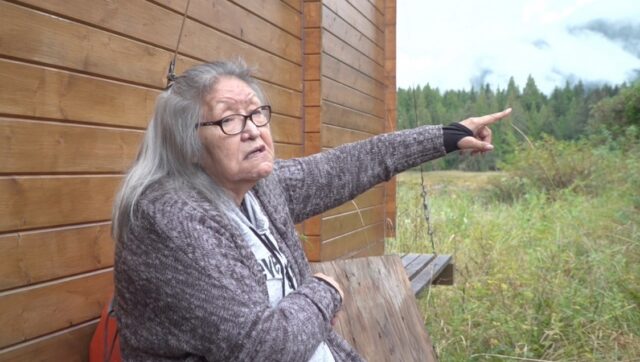
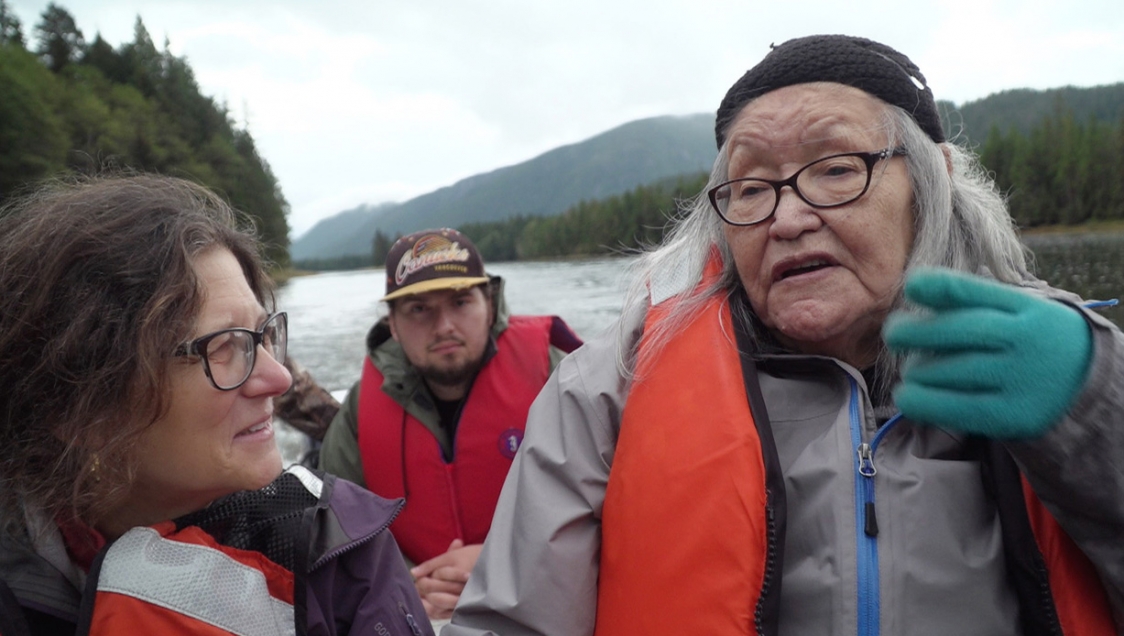
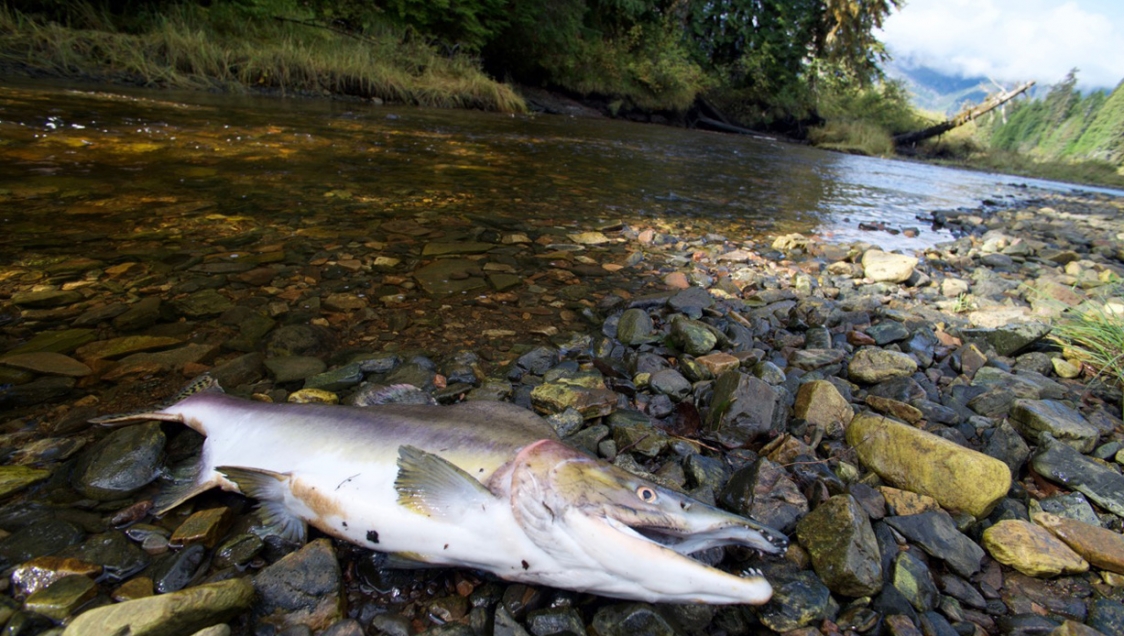
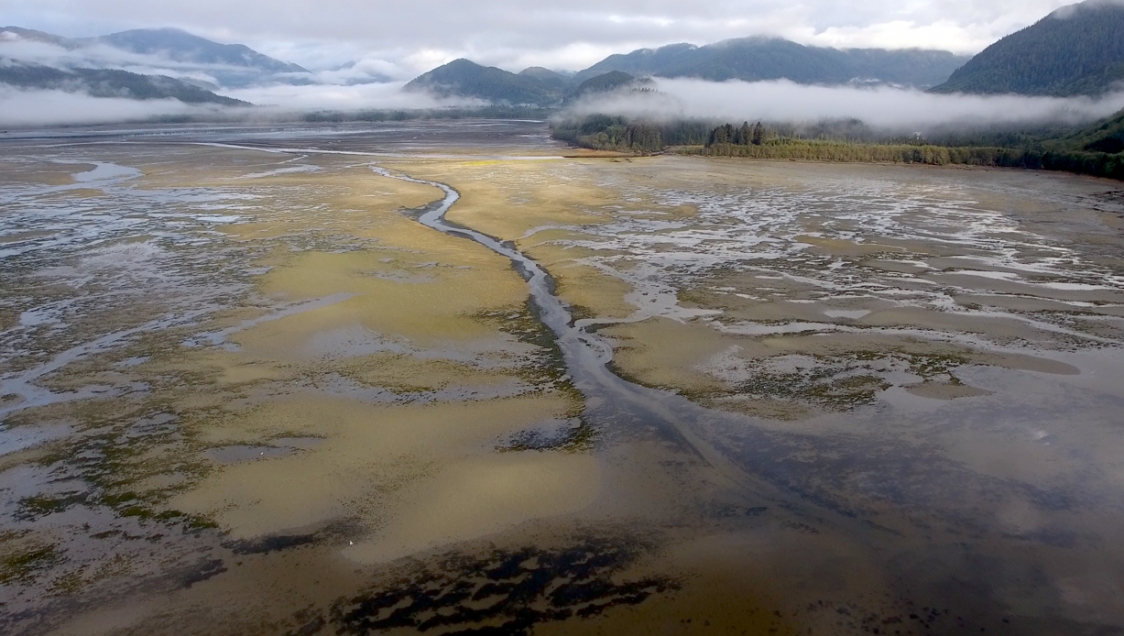
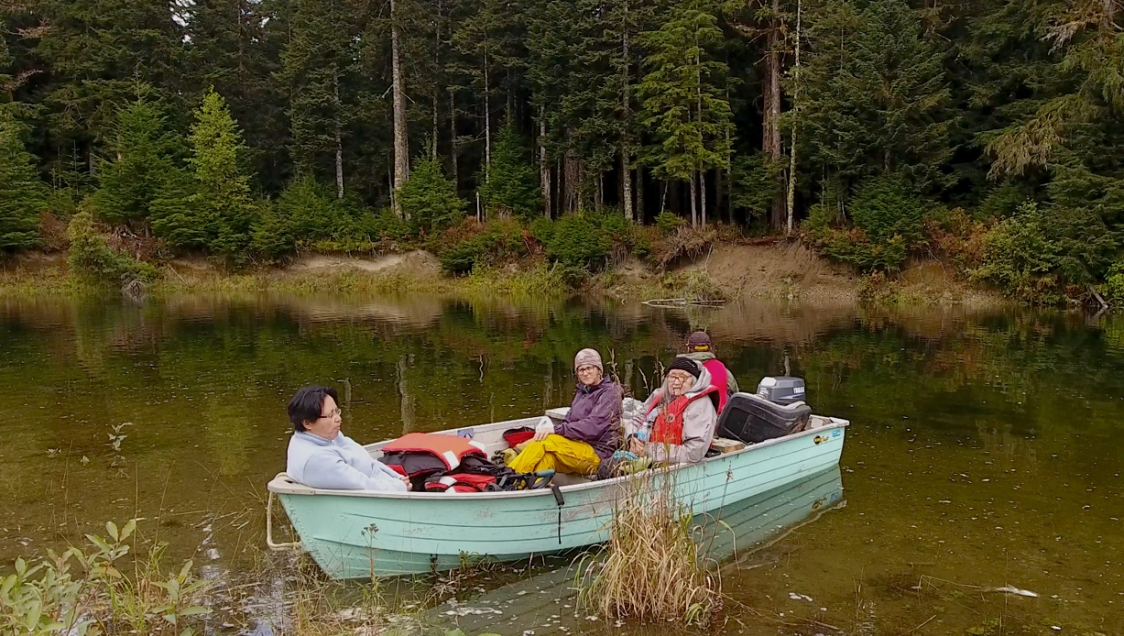
Reconnecting to Laxgalts’ap (Old Town)
The Ancestral Home of the Gitga’at
The Gitga’at’s traditional way of life is threatened by competing interests for natural resources, and the challenge of transferring knowledge between generations. Careful exploration, documentation, and sharing of cultural and ecological knowledge provides a way to engage Gitga’at youth and demonstrate a long history of resource management traditions to people outside the community.
A community driven research project to pass on cultural / ecological knowledge from generation to generation.
Laxgalts’ap or ‘Old Town’ is the birthplace of the Gitga’at and home of their ancestral village in the Great Bear Rainforest for thousands of years. Yet few Gitga’at youth today are able to visit the area or learn the traditions of previous generations. As a result, the Gitga’at Nation faces the potential for loss of cultural and ecological knowledge and diminishing land use rights and title over time.
By exploring, documenting, archiving and communicating Gitga’at Nation’s cultural and ecological knowledge through an interactive website and touchscreen museum exhibit, the project will provide cultural and environmental learning for Gitga’at youth and compelling evidence to support acknowledging Gitga’at rights, title, authority and decision-making influence over how local resources are used.
Capturing and sharing cultural and ecological knowledge before it`s too late
Collecting and sharing cultural and ecological knowledge now is essential due to the age of Gitga’at elders and the impacts of competing interests for natural resources. Lack of recognition for Gitga’at rights and title, coupled with issues such as theft, poaching, trophy hunting, pollution, and mismanagement of forest and marine resources have led to environmental and cultural degradation.
making evidence available to assert rights and title over territory in political and legal systems
The challenge of how to share knowledge lies at the heart of issues around the transfer of cultural ecological knowledge, and what evidence is available to assert rights and title over territory in political and legal systems. Since only a handful of elders born and raised on the landscape of Old Town are alive today, the project will test if a rich and detailed website and touch screen museum exhibit can serve as an ongoing venue for knowledge exchange between older and younger generations, and provide critical evidence of resource management practices performed by the Gitga’at Nation for thousands of years.
The research is supported by deep partnerships between local researchers and community leaders in Hartley Bay, Simon Fraser University, University of Victoria, and the Gitga’at Nation. A network of experts and community members have been selected to perform duties including semi-structured interviews, focus groups, video interviews, photography, archaeological and ethnoecological surveys and excavations, radiocarbon dating, map making and 3D imagery, website and touch screen interface design.
Ongoing assessment of community and ecological health
Capturing and sharing cultural and ecological knowledge will allow the Gitga’at Nation to continue ongoing monitoring and stewardship of their territory, to assess the effects of environmental change, and to protect land and marine wildlife.
Community health will be measured in terms of increased cultural knowledge and pride, while engagement with external audiences will be assessed through visitor statistics for the interactive website and touch screen museum exhibit.
Partners
Simon Fraser University, University of Victoria, Greencoast Media

